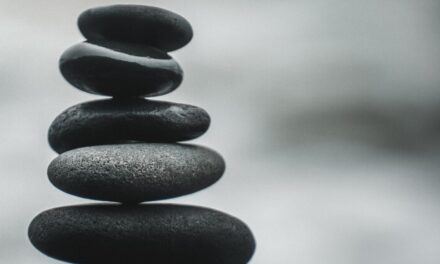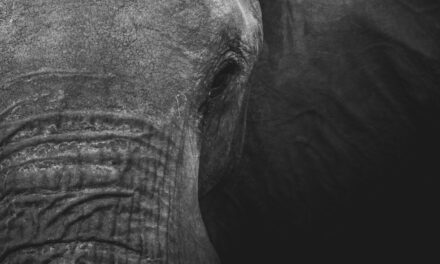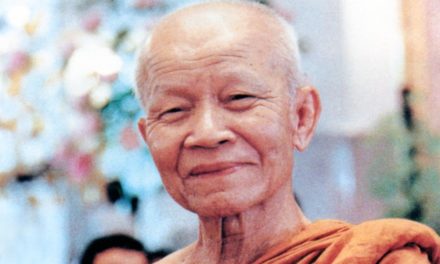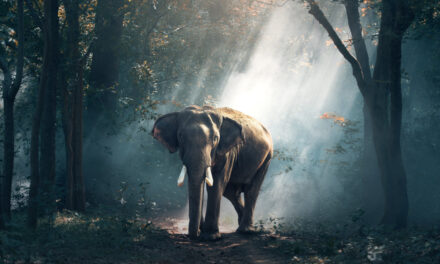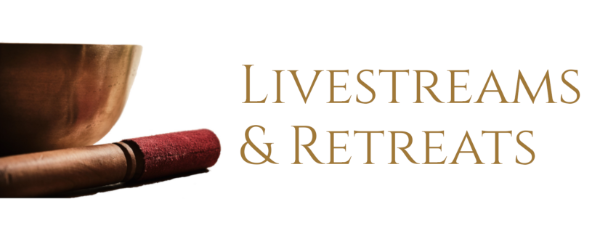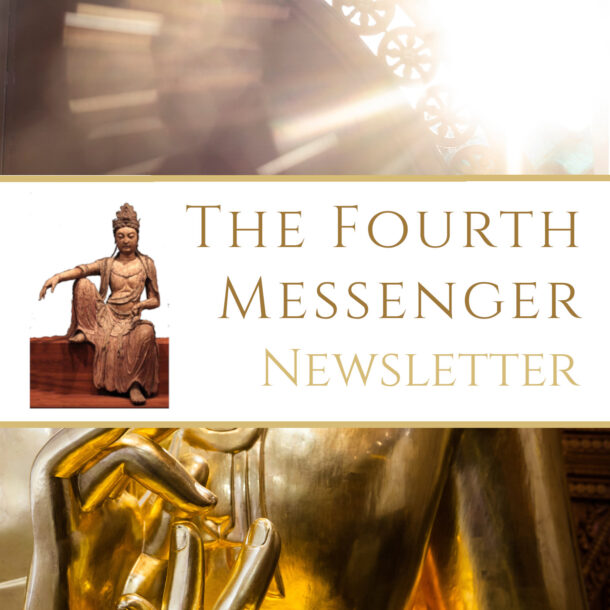War & Peace II: Gus Hales’ Journey from Soldier to Buddhist Prison Chaplain
by Tan Nisabho | Jan. 15, 2022
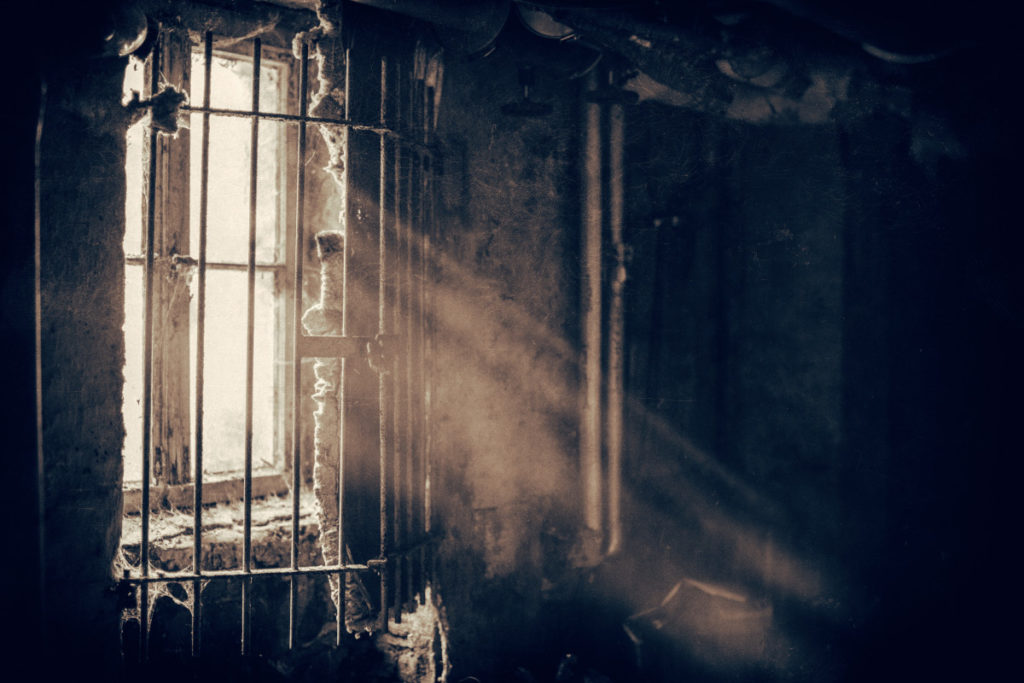
After escaping the mining town where he was born by joining the British Army, Gus Hales was left with severe PTSD and addiction. Amaravati Buddhist Monastery allowed him to heal and inspired him to give back by teaching meditation in prisons, helping with reconciliation efforts between former members of the British military and Irish Republican Army (IRA), and working in support of veterans. You can find more about his path in this video and article. The below text was drawn from interviews conducted in 2018.
My father was a coal miner, and it was a very tough kind of upbringing. He could be brutally short—there wasn’t much time for flowery speech. He lived in a very hard world and he brought it home with him. He could be violent at times, or at least pretend that he was about to explode, but, curiously, I didn’t see him as a violent man.
He was a great walker, and spiritual in a sense. Because he spent so much of his time working underground, he valued space and clean air. So, in the good months he was always taking off on long walks and I would go with him.
We lived by what’s called a miner’s welfare club, and we were allowed an allotment where we grew runner beans. It was a really great community, actually. There was a currency of vegetables—a barter system. Nobody had a car.
It was a hard life of poverty. There came a point in life where I was either going to go down into the pit of the coal mine or join the military. The last year of highschool, they took us to the coal mine, and after we went down into the pit, I told my dad, and he said, “No, you don’t want to be doing that.” So I chose the military and managed to gain an apprenticeship as a gas fitter.
Military
I was a British army paratrooper stationed with the 82nd airborne division at Fort Bragg, in Canada, in Belize, Hong Kong, New Hebrides—all the little bits of the colonial empire which was coming to an end. In 1982, I went to the Falklands War. It was quite a bizarre conflict, really, but nonetheless, it happened.
Like everyone else on the boat south to the Falklands, I was christened in the Church of England, used to go to Sunday school, sang in choir, and all that business. On the boat south, I remember hearing the chaplain say, “Some of you will kill, some of you will be killed, some of you will be injured, but with God’s blessing, go and do your duty.”
That kind of stuff—that standard firing up of people, and being young and naive, I kind of said, “yeah.” We went through the war and it was very traumatic, and at the end, we buried our dead.
Then, I remember the vicar saying something like, “We’ll sing,” and the song was, “Dear Father, Lord, forgive us our foolish ways,” and I remember thinking that this was the same vicar who’d just told us to go out and do our duty, and now we’ve got to appeal to some god for forgiveness for what we’d just been asked to do. It just didn’t make sense.
I could tell you of an incident. Two Argentinian jets came to this logistics ship and there were fifty-five guys killed and another two-hundred seriously burnt. We helped with the casualties. I had to go on the ship to clear it. It wasn’t normal—when we got these casualties, there wasn’t a field hospital. What I do know is that on quiet nights, I would visit that memory time and time again trying to reason it out and make sense of it: “How can people…”
There was this never-ending script… I’ll leave it there.
In Ireland, we were kind of hated. It was a Republican area, and I remember the hatred was palpable—you could kind of touch it. They didn’t like the Brits—that was it. There were bombs in public places and stuff like that. You’d get sniped at. It kept you on your toes. There was the feeling that if you switched off for a minute, you might be hit. That affects you at night, and eventually you find you can’t sleep.
I would say that the way you manage their hatred towards you is hatred back towards them. You start becoming brutalized in that way. You start to see them as the enemy and they see you as the enemy.
I remember going to clear out some mines in the Middle East— getting this task and thinking there was a good chance one or two of us wouldn’t be alive in the morning. I remember sitting behind this rock, contemplating the naivety of the situation, and thinking, What’s it all been for just to die out here, blown apart. I reflected and then there was this total acceptance of it that lasted for an hour or so. When I started hearing the Buddha’s teachings about enlightenment, I thought, “Well, maybe it was like that!” I always related it back to that experience of accepting my fate. I suppose there was something in me that wanted to achieve that state again—just ten seconds of peace like that moment. But there was no road to Damascus; no blinding flash of light.
I gained a sense that armed conflict brings out the worst in people, but also the best. There were times in my life when I knew mates would die for me. I don’t want to sound melodramatic about that. There was the sense that we were a team in a way I’d only ever found before in the mining community. It was replicated in these extreme circumstances.
I came away from that whole thing traumatized—what they call PTSD now, though those words weren’t used then. In some ways, it was more of a moral crisis than a physical crisis. A moral crisis of, “Why did this happen? There must be a better way than this. How did I get involved? This could have killed me.” Burying friends and stuff like that. You come away from that, and if you don’t understand it, you can be in turmoil for years. I spent about ten years driving myself mad obsessively thinking about it. I was probably about twenty-five or twenty-six in the Falklands, and spent the next ten years trying to reason it out, and your life is slowly falling apart because it’s obsessive—you just keep churning it over. It was an awful experience, and I couldn’t really make sense of it.
Introduction to Meditation
I ended up in a soldier’s mental home: a treatment center for stressed-out people. That’s where I met Billy, because he was a soldier in Northern Ireland who served during the Troubles. I remember chatting with him—and it was like my mind was never still. It was obsessive, like a machine gun. I remember him giving me Seeing the Way: The Disciples of Ajahn Chah, a book of ten or twenty monks who’d been to Wat Pah Nanachat giving their personal accounts. I remember reading one by Ajahn Anando, who was a Vietnam war vet, and hearing him speak about how you could transform trauma through kindness and compassion. I kept reading and thinking, “This really makes sense. There’s something about this.”
Billy said we should go to the local meditation class, which was Tibetan. I remember sitting there during a fifteen-minute meditation and noticing there was a bit of stillness there for about ten seconds. After so much busyness, it just felt so wonderful to have that stillness for ten seconds. It was a total relief: a break from this busy mind and from myself. All the rituals I didn’t really like— they didn’t make much sense and seemed a bit foreign to me—but I came away holding on to just those ten seconds, and I thought, “Well, if that was ten seconds, maybe I could get a couple of minutes? I’ve got to go back.”
It took about a year, but I got to about thirty minutes of nothing happening—of just observing things come and go, and that was amazing. This busy mind that had brought me to the point of suicide. I just wanted to kill that mind, and I remember thinking the only way to kill that mind was to kill myself. Billy and I were good friends. He’s a big-hearted fellow. Probably saved my life.
I’ll say that meditation saved my life—and I’m not talking in the extreme—it really felt like that. After that, I enrolled in one of the Goenka Vipassana courses. For the first two or three, it really matched my military mindset; I was really going to sit out, clench my jaw, all that stuff. After a few of those, I thought to myself, “Maybe there’s a slightly kinder way.”
Amaravati
So, in about 2001, I went to Amaravati with Billy for a Sunday talk by Luang Por Sumedho, and I just remember thinking, “This is the same as the vipassana course, only a lot kinder…” As I was coming out of the military mindset, the Goenka stuff just seemed too severe. There’s nothing wrong with it—it’s wonderful, the instruction of observing the Four Foundations of Mindfulness.
When I went to the monastery, it was strange, because the first monk I spoke to was named Ajahn Ariyasilo, and he was an ex-paratrooper who’d joined the Royal Engineers—same as me—which I thought was kind of bizarre. He said something to me that changed my whole life. I’d been playing a game with myself looking for kudos for being a veteran—the ego was there, and it was like, “I’m an ex-paratrooper… Falklands War… listen to me…sob sob.”
I remember we went into this room and he said, “How can I help you?”
“Oh, I was in the Falklands in this war… and it’s kind of driving me crazy.”
And he just responded “Ah, don’t worry about that, they’re just thoughts.”
And then he got up and left, and I thought, “Wow, he’s kind of rude.” But then after a couple of minutes, I thought, “Well, actually, they are just thoughts. It was like he’d sussed me out and was just like, “I’m not playing that game.” He wasn’t going to go, “Oooh, that must be terrible. Tell me about it.” He just wasn’t going to play that game. He just said, “They’re just thoughts. They’re just thoughts.” It was a revelation if you can believe that. It brought me to my senses in a sentence, and I’m eternally grateful for that because it’s what I needed at that time, and he’d seen it in me. I remember thinking, “Crikey, this war ended years ago but I’ve still been fighting it in my head.” That was the beginning of the change, if you like.
He went away and said he’d see me after lunch, and we met in the afternoon and spoke in a bit more depth, and he just said, “You know, if we don’t understand the nature of the mind and just follow our thoughts, you will eventually drive yourself crazy.” He said the purpose of meditation was just to observe your thoughts but not be part of them—just watch them come and watch them go. I realized that all I’d done for the last ten or fifteen years was just follow my thoughts—become my thoughts if you like.
So I just developed Buddhism and realized that this had probably been latent in me my whole life; that I really didn’t want to harm anybody or be involved in this stuff, but life circumstances can sometimes push you in these directions, and this is just where you end up.
I came home, got this spare bedroom, threw everything out of it, put a Buddha and some candles on a table, and meditated an hour each morning, an hour or two in the day, an hour in the evening, and listened to various tapes.
The Ajahn Chah tradition was the one that really resonated with me. I went to many groups— many Tibetan groups—but none of them really seemed to hit the nail on the head like the Ajahn Chah tradition. Ajahn Chah had made these clear statements and they were very understandable–to me, anyway.
I found myself going to the monastery more and more, wanting to work there and spending more time there than at home. I knew how to build. Some of the monks realized that’s what I had to do—busy myself at the monastery—so they were really kind to me because there weren’t many veterans who went. They all understood the traumatic effects of the war. When I walked through the gates, it felt like no one was judging me—just give the bloke some space and let him do what he needs to do. Blessed. I don’t know where I’d be if I hadn’t gone.
I gradually came to understand it. I knew there was something in it—that was obvious. But actually, the understanding of it takes time. Sankhara—these things that come up. After a while you see that each mindstate will come with a feeling—pleasant, unpleasant, or neutral. That’s liberation. That’s what I found—I could observe sensations instead of reacting. But even now, these things can still overpower me.
I was sitting on the grounds one day, and this pheasant came up from behind me and jumped on my shoulder, and I just remember thinking, “This bird doesn’t fear me.” I’ve made my peace with the animal world… from being a soldier that’s taught to kill.
Outside the monastery, things began changing little by little. I’ve worked in some pretty tough industries—post-military industries… cleared mines in the Middle East… certain things happened there. When I discovered Buddhism, I just let go of all that. My daily life was becoming better. I found I could achieve more by being mindful than by being manic, and I realized I’d been living for years on manic energies, thinking this is what you had to do. And that started to fall away.
And then there came this realization: “Crikey, all these people out there are suffering, and they don’t know.”
I think people thought I was a bit crazy because it was alternative, not mainstream. We’re conditioned into a culture and to look outside of that can seem a bit strange. But I knew there was something in it.I’d found that ten seconds of peace and thought, “I’ve got to develop this.”
My wife wondered what it was all about, but she saw a change in me. She came along, and then we all kind of managed to fit in with it, and that just felt right. I was more peaceful, less stressed, less anxious. There was just this emotional softening. I think she saw those changes in me and thought, “This is working”. We began to go with our daughter to Buddhist family camp.
Work in Prisons and Reconciliation
I remember one ten-day meditation retreat with Ajahn Vimalo. On day eight, a change happened. I suddenly wanted to be of use to the world instead of making the world fit me. That was quite profound, and I remember thinking about how I could go about it.
So, in 2008 I became a Buddhist prison chaplain. I was fortunate to go into the prisons. I’d say that’s really where I learned Buddhism. My first prison session was in the Delta wing—the sex offender’s wing—and I remember heading over there with all these preconceived notions. I looked at all these faces and remember thinking, “These are not happy people. How can people change in here?”
The bulk had life-sentences. The prison was their home, and they would have to make a life in there. So they immediately recognized the benefits of meditation, because it was something they could do in their cell.
I remember saying to them, “Remember this, lads—the story from Ajahn Brahm where they laid foundation stones, and there were half-a-dozen bricks out of place out of the whole lot. The trouble with you is you’re just obsessed with the six bad bricks. It may have taken you ten minutes to burgle, and now you’re labeled a burglar. But let’s put that to one side and focus on the other forty years. You’ve pushed the whole other part of your life to one side.”
I asked who was a father and how they treated their sons. Suddenly, the burglary didn’t seem so much. The rest of the prison system was just concentrating on what they’d done wrong, calling them an offender. That’s how the system was: it kept them in the labels.
I found that going to the monastery, there was a lot covered up with what I call middle-class angst. There’s this middle-class promise of getting a good education, getting a good job, and then everything will be alright. Then people get to forty and they realize it isn’t, and they move towards Buddhism, though it’s sometimes the Buddhism they want rather than Buddhism as it really is.
In prison, I found the raw, cutting edge of suffering. I had a very common-touch and easy way of speaking to them, which they appreciated: a kind of no-frills Buddhism which a lot of prisoners identified with. I loved it dearly, that job. My understanding developed from that, because you’d hear all sorts of stories, and it gave you the ability to really not judge anyone, because even with the horrific stories they’d tell you, you had to rest in that middle way of not judging them and just listening. Trust me, I heard some horrific stuff that people had got up to, but you would still love them for all their faults and all their misdemeanors, and they appreciated that. They appreciated someone who could empathize with them—not condone what they’d done, but at least try to understand how they’d come to be in that position. I had some wonderful letters from people saying how I’d helped them and maybe helped them come out of their suffering and live more fruitful lives. I remember one said, “I don’t feel I’m doing time any more. I feel I’m doing something constructive. This prison sentence probably saved my life, because I was on the road to destruction.”
Then,about four years ago, the prison system went a bit chaotic— there were a lot of drugs in there and I found myself trying to teach meditation to people who were psychotic. I realized that’s just about as far as I could take it, so I decided to leave and find myself other things to do.
I went to the Dalai Lama a few years ago in Nottingham and he said, “Seek what unites us, not what divides us.” Since then, I joined an organization called Veterans for Peace. I went back and finally met the IRA, and when I heard their narratives, I realized their situation was the same as mine.
I became good friends with a bloke named Pat Mcgee, if you’ve heard of him. He was the Brighton Bomber—the guy who blew the Grand Hotel up—and I found him to be a lovely guy. When I listened to his stories and heard how he’d come to be in the IRA—what sort of oppression was going on, I kind of gained a perspective. I wouldn’t condone what he did, but I kind of understood, y’know. I met all the various members of the IRA and became very good friends with them, and you think, “Here’s a former combatant who we were fighting, and now we’re friends with one another and have mutual respect for each other.”
When I discovered Theravada Buddhism, it felt like that’s who I was and I could drop the other role. Sometimes it felt like Pow! — instant, but other times it felt like a gradual revealing of itself. It was saṃvega: the instant understanding of the futile way you’ve lived your life, and there’s a sense of urgency to want to change. I understood that my life before this had been kind of futile. I was just trapped in what Luang Por Sumedho would call the mundane, and yet there was this supramundane aspect of existence—the transcendent. I realized you just have to keep waking up, and then you’ll see more clearly.

